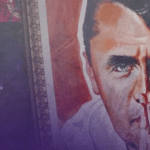
 The Roys Report
The Roys Report Charlie Kirk’s Assassination and the Danger of Demonization
Oct 1, 2025
Paul Coughlin, founder of The Protectors and an anti-bullying expert, dives into the dangers of demonization and its alarming potential for real-world violence, illustrated by recent events. He highlights how dehumanizing language fuels physical harm, drawing parallels to historical atrocities. The discussion extends to the moral implications of celebrating violence on social media and the rise of antisemitism. Coughlin emphasizes the importance of preserving dignity in opposition and offers practical steps to combat toxic rhetoric, advocating for personal accountability and humility.
AI Snips
Chapters
Books
Transcript
Episode notes
Words Can Pave The Way To Violence
- Violent rhetoric often begins as dehumanizing words that make harm feel justified to listeners.
- Paul Coughlin warns repeated demonizing language pushes some people to cross from words into violent acts.
Dehumanization Lowers Moral Barriers
- Perpetrators convince themselves people deserve harm by demeaning and renaming them repeatedly.
- This dehumanization lowers the psychological barrier to violence for many listeners.
Rwanda Example Of Language Fueled Genocide
- Paul Coughlin links the Rwandan genocide to dehumanizing language like calling people "cockroaches."
- He traces that rhetoric to historical precedents like Nazi propaganda and warns of similar dynamics today.






